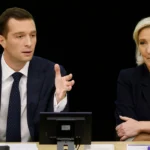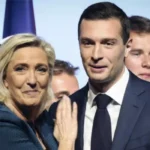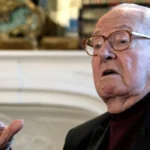The Kagame regime is opposed to the appointment of a Belgian diplomat, due to the kingdom’s criticism of Rwandan interference in the Democratic Republic of Congo.
In Brussels, the affair is extremely embarrassing. While the head of European diplomacy, Josep Borrell, was due to appoint his first special representative for the Great Lakes region, which includes Rwanda, Burundi and the Democratic Republic of Congo (DRC), in mid-June, he has just decided to extend the recruitment procedure until 5 July. An email was sent to the Member States on 14 June to inform them of this. The subject is to be discussed in particular at the Council of European Foreign Ministers to be held on Monday 23 June in Luxembourg.
In the spring, two candidates were interviewed: Pekka Haavisto, former Finnish Minister of Foreign Affairs, who ended up withdrawing. His main fault was that he does not speak French, even though the region is French-speaking. So there remains the second contender, the Belgian Bernard Quintin, former Africa director of the European diplomatic service, who was unanimously supported by the member states. And yet, he will not be the next special envoy to the region either.
Paul Kagame, the Rwandan president, did not wait to see Emmanuel Macron on Thursday, June 20. At the end of April, during a telephone conversation, he told his French counterpart of his opposition to this choice, according to the specialized media Africa Intelligence. Following this exchange, Paris, but also other countries such as Sweden and Denmark, then made it known that before any appointment of a special envoy, it was necessary to ensure that he would be well received in the countries of the region.
“If we want such a representative to be effective, he must be able to speak to everyone and be received by all regional actors. If a country opposes it, this European special envoy will be weakened,” summarizes a diplomatic source. While ambassadors must submit their credentials to their host state, the procedure is much more vague regarding a European special envoy, who speaks on behalf of the Twenty-Seven. Theoretically, a third country has no say in the matter.
“A very bad message”
Belgium, historically close to the Democratic Republic of Congo, where Rwanda is militarily engaged with the M23 rebels who are destabilizing eastern DRC, is paying for its poor relations with Kigali. In 2023, the kingdom notably refused to approve Vincent Karega, chosen by Kigali to be ambassador to Brussels.
A Belgian diplomat should not have been preselected for such a position, according to the European External Action Service. Several Member States have thus called for a more neutral profile.
There remains a feeling of humiliation for Europe, at being dictated to by Rwanda, already accustomed to interference, as demonstrated by the investigation “Rwanda Classified” by Le Monde and Forbidden Stories in May.
“The selection panel’s choice of Mr. Quintin was unanimous and was known to very few people,” confided a diplomat familiar with the matter. “How did Mr. Kagame learn about it? Rwanda then put pressure on itself to avoid the appointment of a special envoy to the region, that is its right, but it should never have been informed so early of this appointment.”
This procedure was a disgrace,” raged another European diplomat in Brussels. “Letting a third country dictate our conduct sends a very bad message. Such a recruitment process cannot happen again. It is not possible,” added a third diplomatic source, who called for the appointment of a new special envoy as soon as possible.
“With Rwanda, you have two options: either you oppose and you gain respect, or you give in and you get trampled on,” says an experienced diplomat. “Europe has chosen the worst option.”
This article is originally published on mediacongo.net






